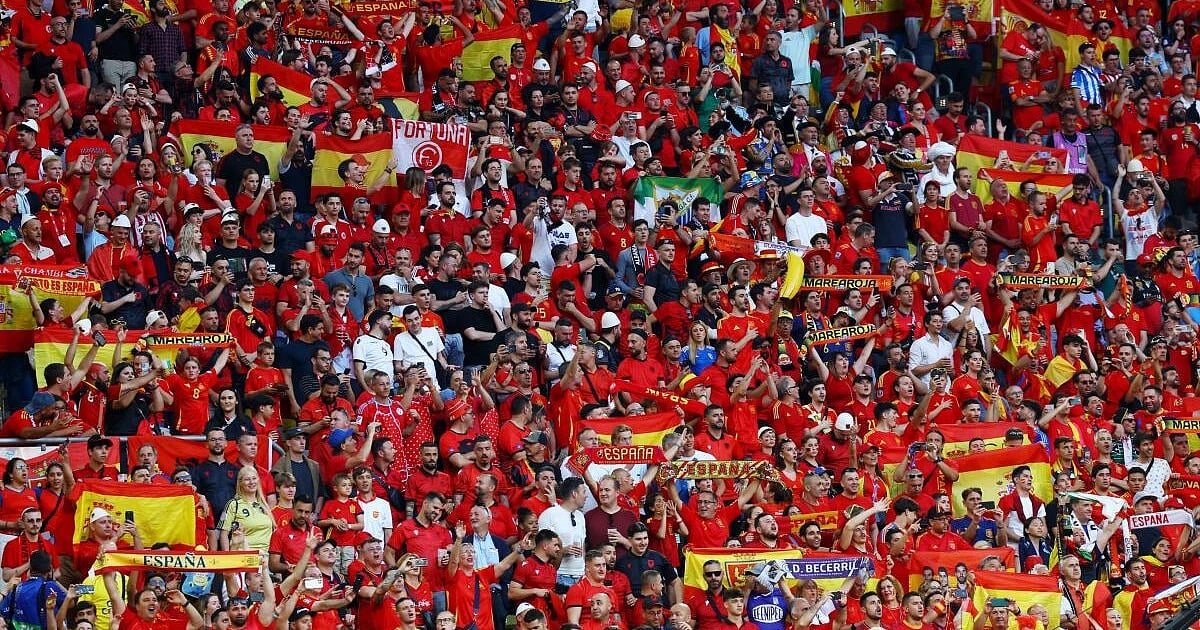


As far as Martínez could tell, though, Bilbao was somehow immune. There were plenty of flags draped from balconies, but they stood for Palestine, or Pride, or, most commonly, the Basque Country itself, in the form of the region’s traditional Ikurriña. The Spanish flag flew only from a handful of official buildings.
Martínez was well aware of why that is. The Basque Country, a mountainous region that presses up against the Bay of Biscay and the Pyrenees in the north of Spain, has long regarded itself as distinct from the rest of the nation. It has its own language, culture and identity. The Basque struggle for autonomy, even independence, has long and bloody roots.
He was keen, then, to be respectful of his hosts, and not cause any offense. When Spain scored early in its third group game, a meeting with Albania, he and his colleagues responded with a brief, muted cheer — little more than an exhalation, rather than the joyous abandon they might have displayed in Seville.
“It’s probably better to be a little discreet,” he said. “I don’t know how people here feel about the national team.”
For years, his anxiety would have been well placed. Though Spain played its first-ever home game at San Mames, the home stadium of Athletic Club, Bilbao’s fervently supported local team, in 1921, the men’s national team has not visited the city since 1967, seemingly an admission that it was not safe ground during the years when ETA, the Basque separatist group, was active.
In 2014, when it was announced that Bilbao would be a candidate to host several games at the 2020 European Championship — including three demarcated as Spain’s “home” games — one leading Basque politician suggested such an idea would inevitably conclude with “tanks on the streets.”
In the end, the coronavirus pandemic meant that Bilbao was removed from hosting duties — it was replaced by Seville — when the delayed tournament eventually took place.
The suspicion lingered that switching the location for more amenable territory was a relief for authorities: Athletic’s fans habitually jeer the Spanish national anthem, after all. And Andoni Ortuzar, the leader of the Basque Nationalist Party, said during the tournament that he wanted England, rather than Spain, to win.
On the surface, little has changed this year. This month, Aitor Esteban, one of Ortuzar’s colleagues, admitted he would not support Spain during Euro 2024. “My team is the Basque one, not the Spanish one,” he said. “If I am a supporter, it will be for someone else.”